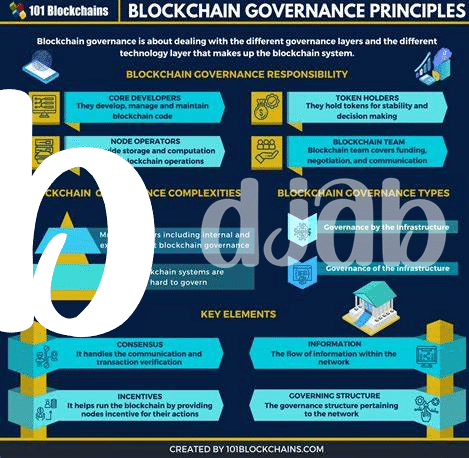Blockchain’s Role in Ensuring Election Transparency 🌐

Blockchain technology offers a transformative approach to ensuring the transparency of elections. By providing a decentralized and immutable ledger, it creates a secure and tamper-proof system for recording and verifying each vote cast. This transparency can help in enhancing trust among the electorate, as well as reducing the possibility of fraud or manipulation during the election process. Through the utilization of blockchain, the entire voting process can be made more transparent and accountable, fostering a system where the integrity of elections is paramount. By leveraging blockchain’s capabilities, election stakeholders can work towards a more inclusive and trustworthy democratic process.
Advantages of Utilizing Blockchain Technology 📊
Blockchain technology offers a transformative approach to ensuring secure and transparent elections. By leveraging its decentralized nature, blockchain eliminates the potential for tampering or manipulation of voting data, providing a reliable and immutable record of election results. This transparency helps to instill trust in the electoral process, fostering greater participation and confidence among voters. Moreover, blockchain’s ability to streamline and automate various election procedures can significantly reduce administrative costs and enhance the efficiency of the electoral process.
Furthermore, the use of blockchain technology introduces a high level of data security, protecting sensitive voter information from cyber threats and unauthorized access. Additionally, the implementation of smart contracts on blockchain networks can help to enforce election rules and regulations automatically, minimizing the risk of human error or fraud. These advantages not only promote transparency in elections but also pave the way for more inclusive and accessible democratic processes in the future.
Addressing Challenges in Implementing Blockchain Solutions ⚙️

Challenges can arise when implementing blockchain solutions for elections, as factors such as scalability, data privacy, and interoperability need to be carefully considered. Ensuring the security and integrity of the blockchain network, as well as addressing any potential vulnerabilities, is crucial for the success of transparent electoral processes. Additionally, adapting existing election systems to integrate blockchain technology may require significant technical expertise and resources. Collaboration between government entities, technology experts, and electoral stakeholders is essential to navigate these challenges effectively and optimize the benefits of blockchain in enhancing election transparency and integrity. Successful implementation hinges on thorough planning, stakeholder engagement, and ongoing evaluation to refine the use of blockchain for democratic processes.
Case Studies of Successful Blockchain-powered Elections 🏛️

Case Studies of Successful Blockchain-powered Elections 🏛️: In recent years, countries like Estonia and the city of Zug in Switzerland have successfully conducted elections using blockchain technology. These case studies have shown how blockchain can increase transparency, security, and efficiency in the electoral process. By providing immutable and transparent records of votes, blockchain has the potential to revolutionize the way elections are conducted, ensuring trust and credibility in the democratic process. These successful implementations serve as a testament to the transformative power of blockchain in the realm of elections.
Blockchain technology innovation policies in United States
Public Trust and Confidence through Blockchain Verification 🔒
Blockchain technology holds the key to revolutionizing the trust and confidence in electoral processes through transparent verification methods. By utilizing blockchain for election management, voters can have a secure and immutable record of their participation, ensuring the credibility of the results. The decentralized nature of blockchain offers a unique opportunity to enhance public trust by allowing voters to independently verify the integrity of the election process, ultimately reinforcing confidence in the democratic system.
The utilization of blockchain verification not only enhances transparency but also mitigates risks of fraud and manipulation in electoral outcomes. Through blockchain-powered verification mechanisms, citizens can have real-time access to authenticated voting data, promoting accountability and reducing the potential for electoral malpractice. This innovative approach opens the door to a new era of trust and confidence in elections, fostering a more robust and inclusive democratic ecosystem.
Future Potential of Blockchain for Democratic Processes 🌿

The potential for blockchain technology to transform democratic processes is immense. By leveraging its decentralized nature and transparent framework, blockchain can revolutionize how elections are conducted, ensuring fairness, security, and trust. Through immutable records and secure verification processes, blockchain has the capability to enhance voter participation and uphold the integrity of electoral systems worldwide.
To explore further on the advancements in blockchain technology innovation policies, you can refer to the blockchain technology innovation policies in the United Kingdom, and compare them with the strategies adopted in the United Arab Emirates. This insightful comparison sheds light on the diverse approaches taken by different nations to harness the potential of blockchain for societal progress.
